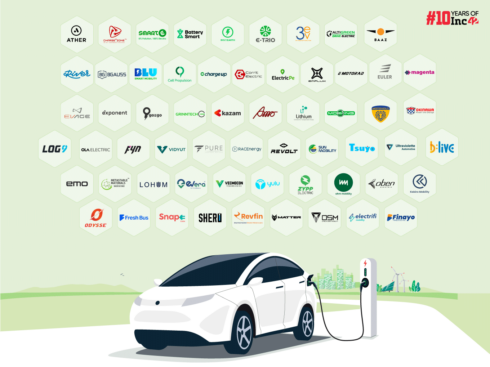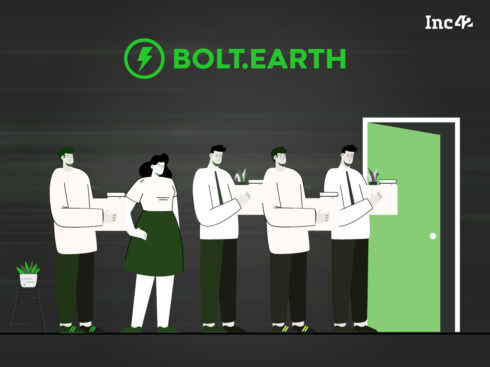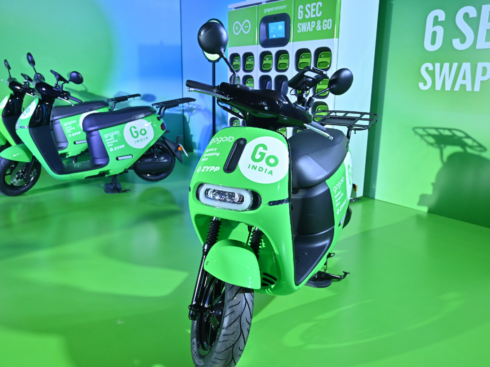SUMMARY
The average cost of petrol and electric two-wheelers is INR 2 per km and INR 0.15 per km
A majority of the customers for electric two-wheelers and three-wheelers hail from Tier II and Tier III cities
Inc42 explored the realm of electric vehicle (EV) adoption from a consumer and business standpoint to understand the ground reality of the industry
Range anxiety, lack of charging stations, expensive vehicles and few options in the market — even if one argues that these challenges in the electric vehicle market in India have limited the scope for EVs, there’s another side to the EV saga.
India’s traffic can drive people nuts and eat a hole into their wallet through fuel and maintenance costs, and electric vehicles are seen as a silver lining by commuters.
Take the example of Nikhil Ranjan, a techie in Bengaluru, who transitioned from a regular car to an electric Ather 450 scooter. Travelling 17km from Sarjapur to Electronic City for work daily meant that Ranjan used to spend thousands on petrol every month. Plus Bengaluru’s traffic can cripple even the most optimistic of commuters. The whole ordeal is exhausting — not just for Ranjan — as hours are wasted every day and with over INR 5K spent per month for fuel.
“Forget SUV and XUV, after I switched to electric vehicle my car has been converted to an RUV (Rarely Used Vehicle),” quipped Ranjan on Twitter recently.
Speaking to Inc42, Ranjan, who rides the premium Ather 450 electric scooter, said that he now reaches office faster as bikes and can navigate much more easily on crowded roads, and claims he hasn’t spent a penny on travel in the last six months — not even for the electricity used to charge the scooter every day.
“The vehicle cost me 1.25 Lakh, and I did the math, which comes to INR 5K for the next 2 years. It’s really a good investment,” he said.
Making EVs Easier To Adopt
In fact, being an early adopter of sorts has helped Ranjan sort out problems such as idle battery drain within days as Ather Energy’s team looks to solve issues quickly. Ather also replaced damaged battery cells with new battery packs, free of cost, he said. With such customer service, it’s no wonder than the first wave of EV commuters have rave reviews about electric vehicles.
Ather has been tackling the battery issue since the launch of its electric scooter in 2018. Initially, the company had launched two variants, Ather 340 and 450. In September 2019, the company had to stop the manufacturing of Ather 340 due to low demand and longer wait period. In the recently launched Ather 450X, the company claims to have changed the ownership model and reduced the upfront payout for the scooter, thereby reducing the battery replacement cost to virtually nothing. These and other features are meant to make EVs more attractive for consumers. And it seems to be working very well.
Ather said the model allows customers the flexibility to switch between performance packs as well as receive free battery replacement in the event of battery degradation, ensuring consistent performance throughout the registered life of the electric scooter.
Ranjan, who has subscribed to Ather One plan, added:
“I get to charge the electric vehicle at any Ather Grid, free of cost for a year. Also, the electricity that I use at home for charging the vehicle, I get reimbursed for that. So, literally, I haven’t paid a single penny in the last six months.”
In fact, even without being compensated for the power consumed, on average, Ranjan would have spent about INR 350- INR 400 per month for charging. Given that Karnataka has a higher energy cost-per-unit consumed means that this is likely to be lower in other states.
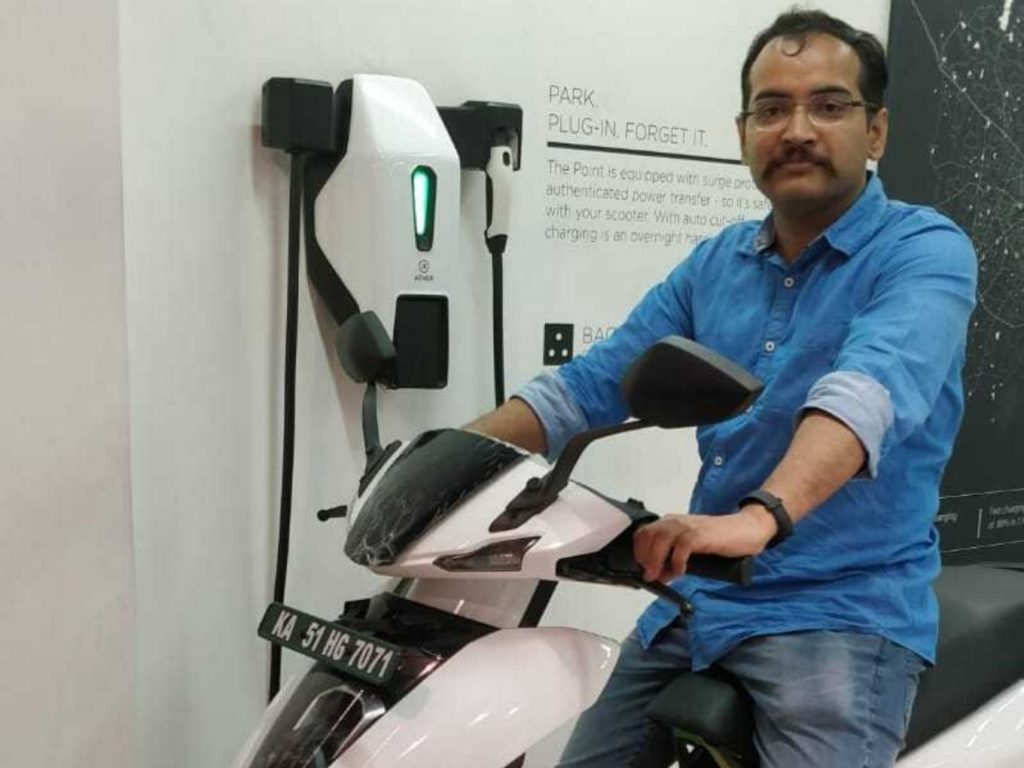
Even speed demons and motorcyclists are moving towards EVs. Electric vehicle enthusiast Srikanth Reddy, who owns an Evolet Pony Classic another EV scooter, told Inc42 that switching to electric vehicles was down to them being more affordable in operation.
“I travel from New Delhi to Gurugram on an everyday basis. On average, I was spending about 6K on my petrol scooter [Honda Activa], only for fuel, and that excludes oil change, servicing and other expenses. But after switching to an electric scooter, life has become simpler. Now, I spend INR 300 per month just for charging the vehicle, and nothing else. So, it is INR 300 versus INR 6000!”
Gurugram-based Evolet is one of the many electric scooter manufacturers in India. Operated by REM (Rissala Electric Motors), Evolet manufactures electric scooters, motorcycles, electric all-terrain vehicles (ATV) and electric buses. Apart from Evolet Pony Classic, the other models in its lineup include Pony EZ, Polo Classic, Polo EZ, Derby Classic and the powerful ATV Warrior among others.
“The best part about buying an electric vehicle is that you don’t have to pay extra for registration. Anyone above 14 years of age is eligible to purchase the vehicle, that’s the beauty” said Reddy.
DataLabs analysis also found that the Indian electric vehicle market is expected to touch 28 Mn units by 2030 with the contribution of commercial vehicles and two-wheeler segment at 70% and 20%, respectively.

Are EVs Cheaper In The Long Run?
A look at the prices of various EVs around the country shows that electric vehicles are less expensive than regular scooters and two-wheelers.
Inc42 compared the prices of Evolet’s low-speed electric vehicles to the petrol-fuelled Honda Activa. Technically, a Honda Activa costs more than the Evolet Pony Classic. In other words, after the on-road registration, tax, insurance, pollution certificate and additional accessory charges, Honda Activa’s price comes up to 65K. On the other hand, Evolet Pony Classic cost about 45K, without any registration hurdles, tax rebate and zero additional accessory charges.
“That’s a huge deal for customers as they save 20K just by investing in buying an electric vehicle.”
While the Pony Classic is not exactly a high-performance bike, it does manage to compete with some of the cheaper fuel options in the market. For EV manufacturers though, reducing the price for more high-end bikes is a bigger consideration.
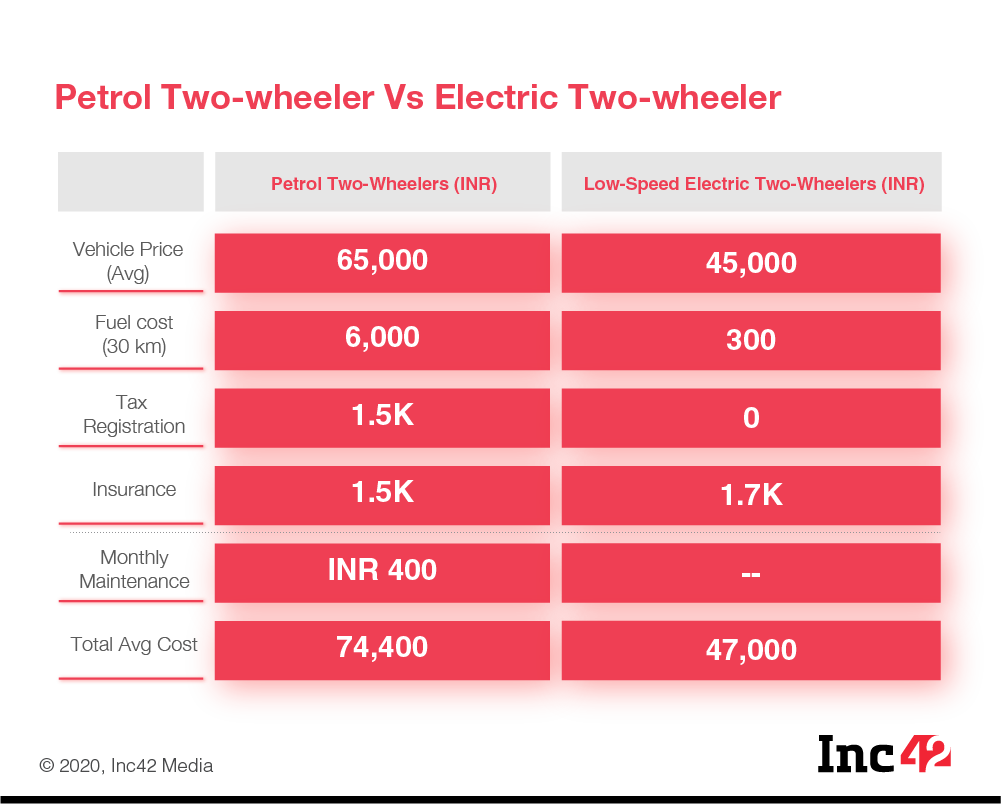
For electric two-wheelers, according to various reports, nearly 70% of the cost goes into the battery. Therefore, assuming the vehicle price is INR 45K, about INR 31.5K goes into making the battery. If there is any damage in the battery packs or the battery has to be replaced it is going to cost a pretty penny for the customers once the free service ends. With batteries being imported from abroad, these EVs remain unaffordable for many Indians.
But low-performance options deliver the savings.
Irfan Khan, founder of eBikeGo, an electric two-wheeler rental startup, agreed that EVs are more economical than petrol two-wheelers. Based in Amritsar, eBikeGo is an electric bike rental and taxi startup that offers solutions for all kinds of logistics support and daily commuting needs. “The unit economics per delivery has reduced drastically. Currently, for petrol and electric vehicles, it is around INR 2 per km and INR 0.15 per km, respectively,” Khan added.
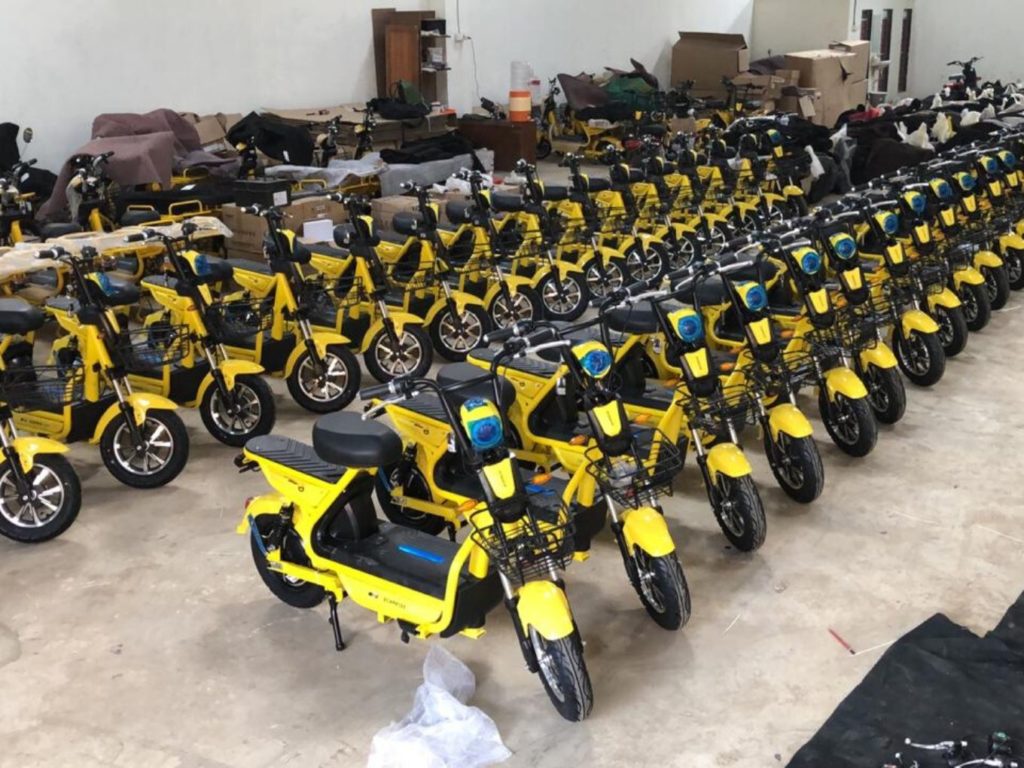
Is Three Better Than Two?
Beyond two-wheelers, electric three-wheelers have become the defacto flag-bearers of the EV industry. India is witnessing a massive electric rickshaw adoption, both in terms of commercial use and for public transport.
Sameer Agarwal, founder and CEO of RevFin told Inc42 that three-wheeler electric vehicles are much cheaper than the existing CNG rickshaws and that’s why they dominate the electric vehicle market. The situation here is quite the opposite of what’s playing out in EV two-wheelers and cars, where the electric versions are often more expensive
“The benefits are immense. In comparison to CNG rickshaws, electric three-wheelers don’t have any restrictions on registrations like a license or any other documents to buy the vehicle,” Agarwal added. “Basically, you buy the vehicle and it’s ready to run!”
A majority of the customers for electric three-wheelers hail from Tier II and Tier III cities, and are mostly buying electric vehicles to generate income out of their investment. However, most people in these locations are not well educated and struggle to avail loans as they are not creditworthy.
“Financing to these individuals is a huge risk and an opportunity at the same time,” Agarwal added.
RevFin is working to solve that gap by offering loans to customers from non-metro cities to buy electric three-wheelers for commercial and personal purposes across India. The company claims to have digitised the entire process by developing an app for loan application and disbursal, targeting underserved population in the less urban parts of the country.
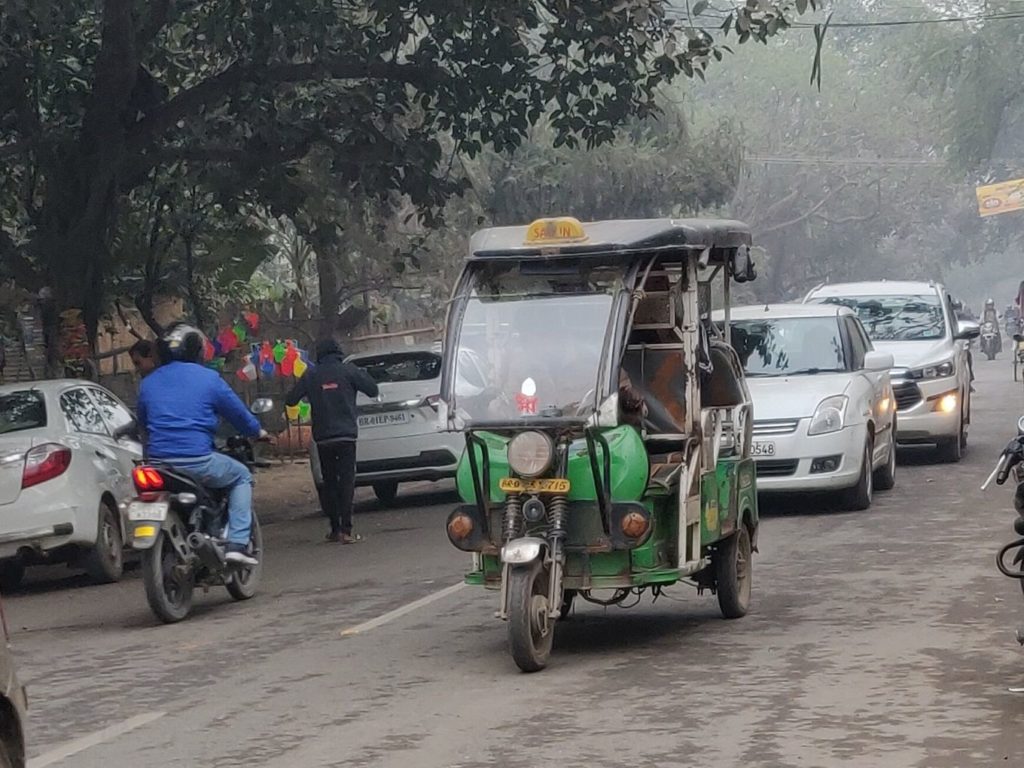
The Hurdles In The EV Track
According to DataLabs by Inc42, in 2019, the electric vehicle market penetration was only 1% of total vehicle sales in India (less than 1 Mn units), and of that, 83% of sales were electric three-wheelers.
In the electric four-wheelers category, the adoption rate is very small and occupies only 10% of the market share in the electric vehicle segment, whereas three-wheeler has 70% of the market share, followed by two-wheeler at 20%.
Experts believe that for electric four-wheelers to become sustainable and affordable in India, a lot needs to be done from an infrastructure point of view. While the positives are plenty, the EV market is not without its disadvantages at the moment.
Experts also said that the present-day electric four-wheelers will soon become outdated in the next three to four years as new electric cars will be launched by Indian and international OEMs that are not only affordable but also uses advanced battery technologies to eliminate range anxiety.
Hydrogen-fuel cell-powered batteries are seeing a lot of research in India as it’s considered to be more feasible than the existing lithium-ion batteries. This is a blessing as there are serious concerns in terms of disposal of the li-ion batteries, as some EV users told Inc42. If not controlled or monitored properly, this could cause environmental hazards like soil and groundwater contamination.
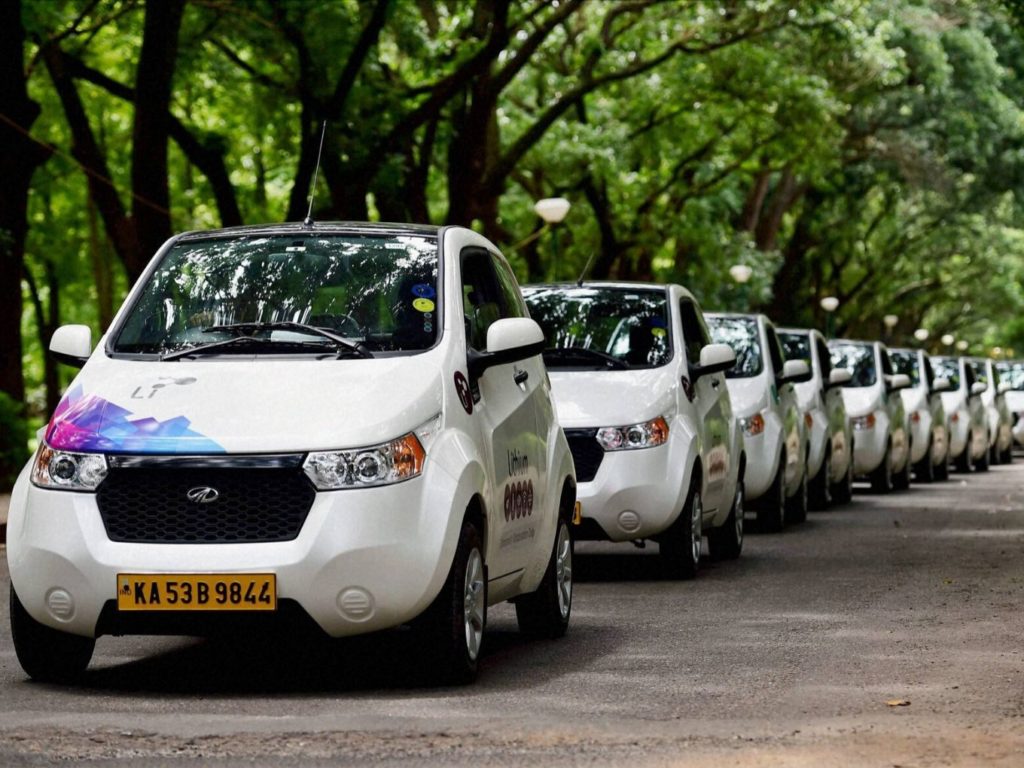
As per a NITI Aayog report, the development in the battery technology market is also expected to grow at a CAGR of 38% between 2019 and 2030. Therefore, it becomes crucial for all the stakeholders and policymakers involved in the ecosystem to take necessary steps and extra measures when it comes to li-ion disposal.
Do EVs Make Sense For Businesses?
As Inc42 explored the realm of the consumer aspect of the electric vehicle market, it also saw a massive adoption from the business side, especially in the ecommerce space. The companies irrespective of size are aggressively adopting electric vehicles in delivery and other operations to save operational cost, increase efficiency, for environmental targets and attract customers.
Ecommerce giant Amazon is planning to build a supply chain that minimises the environmental impact of their operations in the coming days. Akhil Saxena, vice president of customer fulfilment for APAC & emerging markets at Amazon, told Inc42 that the company is on a journey to become an energy-efficient leader in the industry by having an electric vehicle fleet of 10K vehicles in India by 2025.
“We will continue to invest in the electrification of our delivery fleet, thereby reducing our dependence on non-renewable resources,” said Saxena.
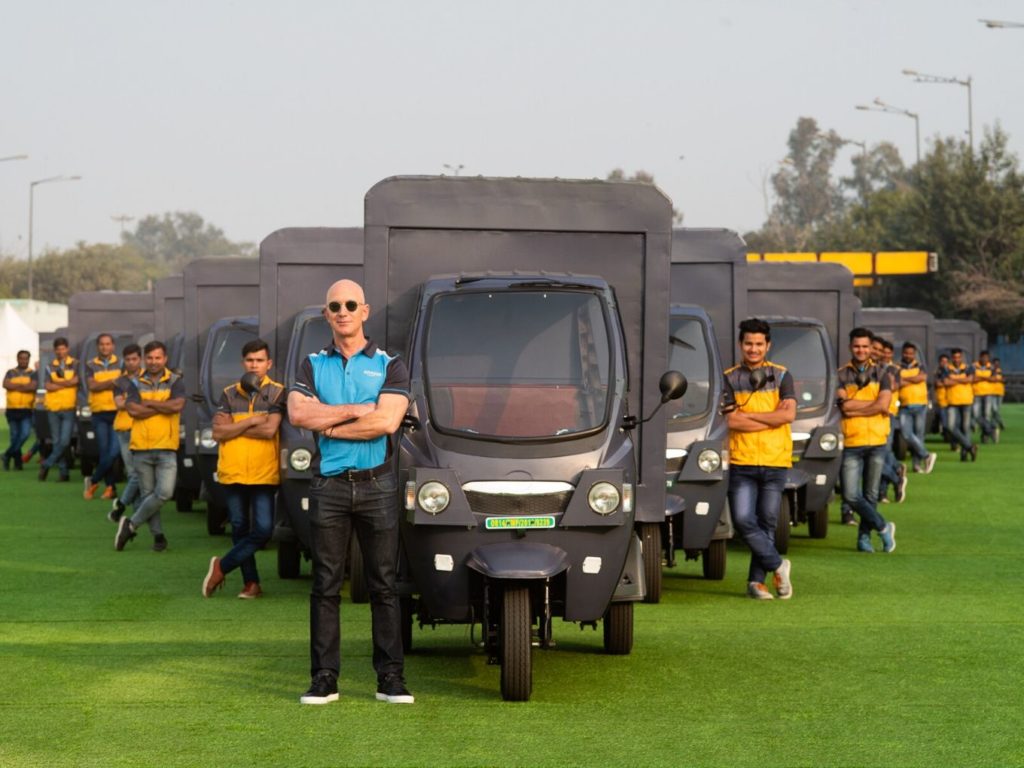
KB Nagaraju, chief customer experience officer at BigBasket, also emphasised on the advantage of using electric vehicles. Nagaraju told Inc42 that for ecommerce companies delivery cost is very crucial. After switching to electric vehicles, BigBasket has been able to reduce cost significantly. Giving the exact numbers, he said that for petrol-fuelled bikes were costing about INR 3 per km, and electric vehicles, on the other hand, cost them INR 0.70 per km.
Riding the electric wave, BigBasket, on the other hand, is also solving the EV charging infra issue by setting up charging stations at their hubs across India. In addition to this, Nagaraju also revealed that it also attracts potential delivery partners with electric vehicle schemes, so that it is beneficial for both parties. “This helps in getting enough capacity in delivery operations and helps us reduce attrition which is also cost,” said Nagaraju.
In the last mile delivery side of the business, BigBasket said that it extensively uses electric vans and bikes to deliver goods to its customers. Further, sharing the exact figures, Nagaraju said that overall adoption of electric vehicles, both three-wheelers and two-wheelers is somewhere around 300 electric vans out of 3000 overall non-electric vans and 300 electric scooters out of 4000 petrol-fueled bikes.
However, from a scaling-up perspective, there is not much advantage to using electric vehicles extensively, he added, as the company uses vehicles carrying loads of two tonnes and above for first-mile logistics/supply chain because of the range and weight loads.
“Unfortunately, there are no real good electric vehicles available to replace the likes of Tata Ace in terms of reliability, capacity and range,” he added.
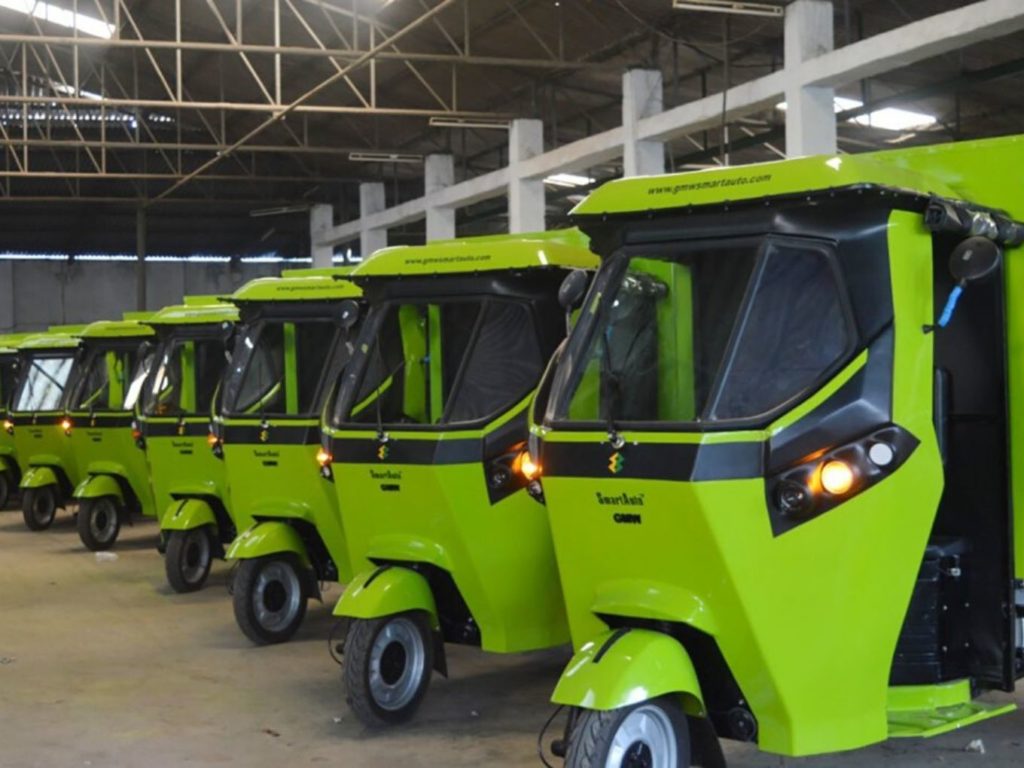
Today, a lot of electric vehicle manufacturers and OEMs are focusing on electrifying fleets for businesses and are manufacturing affordable electric two-wheelers, three-wheelers and four-wheelers for consumers. That is a good start. However, the industry is yet to witness the real impact of electrifying end-to-end operations of the business, logistics and transportation. The future of electric vehicle belongs to those players who think ahead of the curve.








